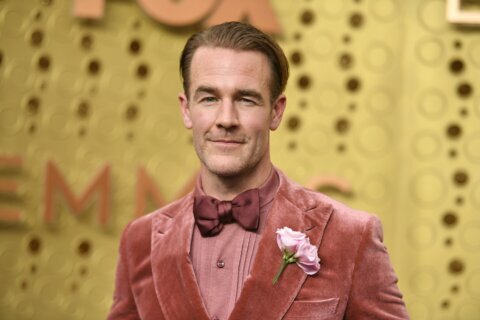WASHINGTON — Are racists born that way? Or are we taught to hate?
That’s the question explored in “Smart People,” running now through May 21 at Arena Stage.
“We have four intellectuals from different walks of life,” actor Gregory Perri told WTOP. “[They’re] basically all coming together and having very, very heated discussions, albeit funny, but very dramatic and intense, mostly about cultural bias and racism. And it’s all stirred together in this wonderful play.”
Created by Lydia R. Diamond, the play follows four Harvard alumni — neurobiologist Brian (Gregory Perri), psychologist Ginny (Sue Jin Song), actress Valerie (Lorene Chesley) and doctor Jackson (Jaysen Wright) — searching for love and identity in a world of rapid social change and “political correctness.”
“Brian comes up with this study that really rocks the world, that racism could actually be ingrained in us, like nature vs. nurture,” Song explained, to which Perri added, “It’s a pretty taboo study.”
The play premiered in Boston in 2014, followed by a show in New York and now the D.C. premiere.
“I did a reading of it in Baltimore, [but] it’s going to be really great to have a D.C. audience see it,” Song said. “It’s set in the time of Obama’s inauguration [and] now, here we are premiering this play so soon after Trump’s inauguration. … With both Obama and Trump, nobody expected either one to win, and the country seemed to take both those elections as a litmus test of where we were as a country.”
This specific setting at such a historic moment provides plenty of fodder for social commentary.
“I remember … the sort of excitement that was happening in the country at that time, like, ‘Wow! Are we a post-racial country? We’re ready for this? We’ve outgrown racism? We’re beyond that?'” Song said. “It’s a very hopeful time for some cast members, but for [others], it’s a questioning time.”
The key to even have this discussion on stage is to give each character differing opinions.
“What’s great about these four characters is they’re four very smart people, but they all have four very different points of views, and they’re completely justified in their points of views,” Song said. “So, you’ll have smart people debating, and yet, they still don’t agree and there’s still miscommunication.”
How does the subject of race affect their two characters specifically?
“Brian is all about ‘let’s take on the system, let’s talk about this, race is the problem,’ [but] as Ginny, I’m more about, ‘Yeah, race is a problem, but let’s think about how we’re going to navigate the system.'”
“Brian likes that pushback,” Perri quipped. “He thinks it’s pretty hot.”
“He thinks anything’s hot when it comes to Ginny,” Song joked.
The chemistry is palpable between the cast, which lightens the mood amid the heavier themes.
“It’s not just people sitting there just talking about race, which could be very dry,” Song said. “It’s very, very funny [and] very, very sexy. … I have to say, this cast has fallen in love with each other.”
Indeed, the four interweaving storylines make for juicy character interactions.
“When we do all come together, it’s really fun,” Song said. “It’s really fun to see the different people meeting, the different relationships they have with each other, the dating and the sexual tension.”
“The fun of the play is that you get to see their individual relationships with characters, who have relationships with other characters,” Perri said. “They just don’t know that [they] know each other.”
The parallel action also makes for striking visual concepts. Conceived by Diamond and directed by Seema Sueko, the four-pane set design looks similar to “Rear Window” or “Hollywood Squares.”
“Lydia does a lot of great things with split-screens,” Song said. “The set design is really cool. There’s a huge scaffold, so you can see people in their individual spaces [and] have multiple places happening at the same time. But the set is flexible enough that it can suddenly change where we’re all together.”
This notion of “coming together” is the hope for the audience as well.
“It highlights how difficult it is to talk about race and how frightening it can be,” Song said. “Right now, people are afraid to have frank discussions because they’re afraid of getting people upset. What I love about theater is it provides a safe space for us to have these discussions on stage, then hopefully allows a space for people to feel safe enough to continue the discussion after the show is over.”
Not only might you change the world, you’ll also have a good time.
“We’ve got sex, violence, politics,” Song said. “Everything you could possibly want out of a play!”
Click here for more information. Listen to the full conversation with the cast of “Smart People” below:








